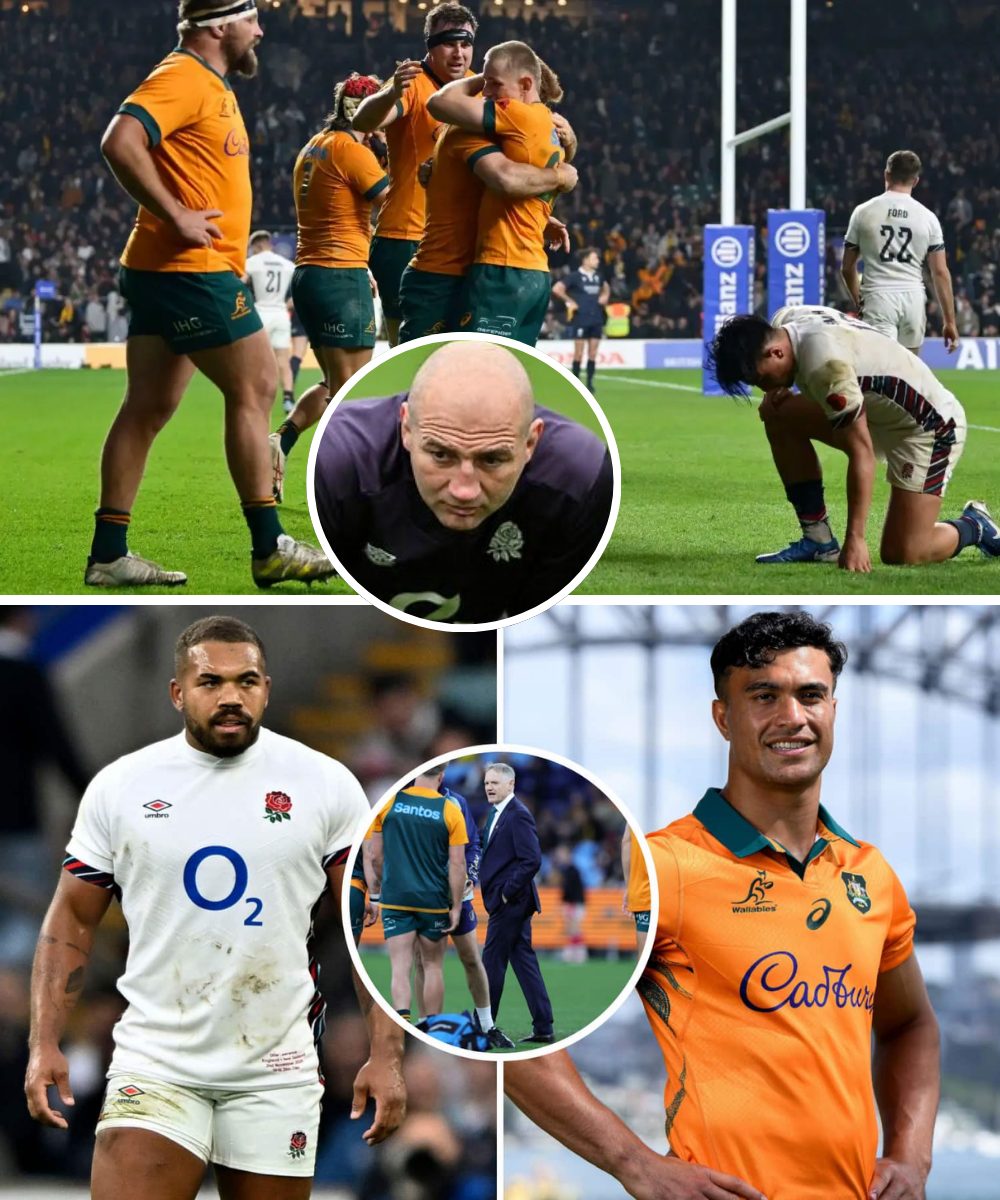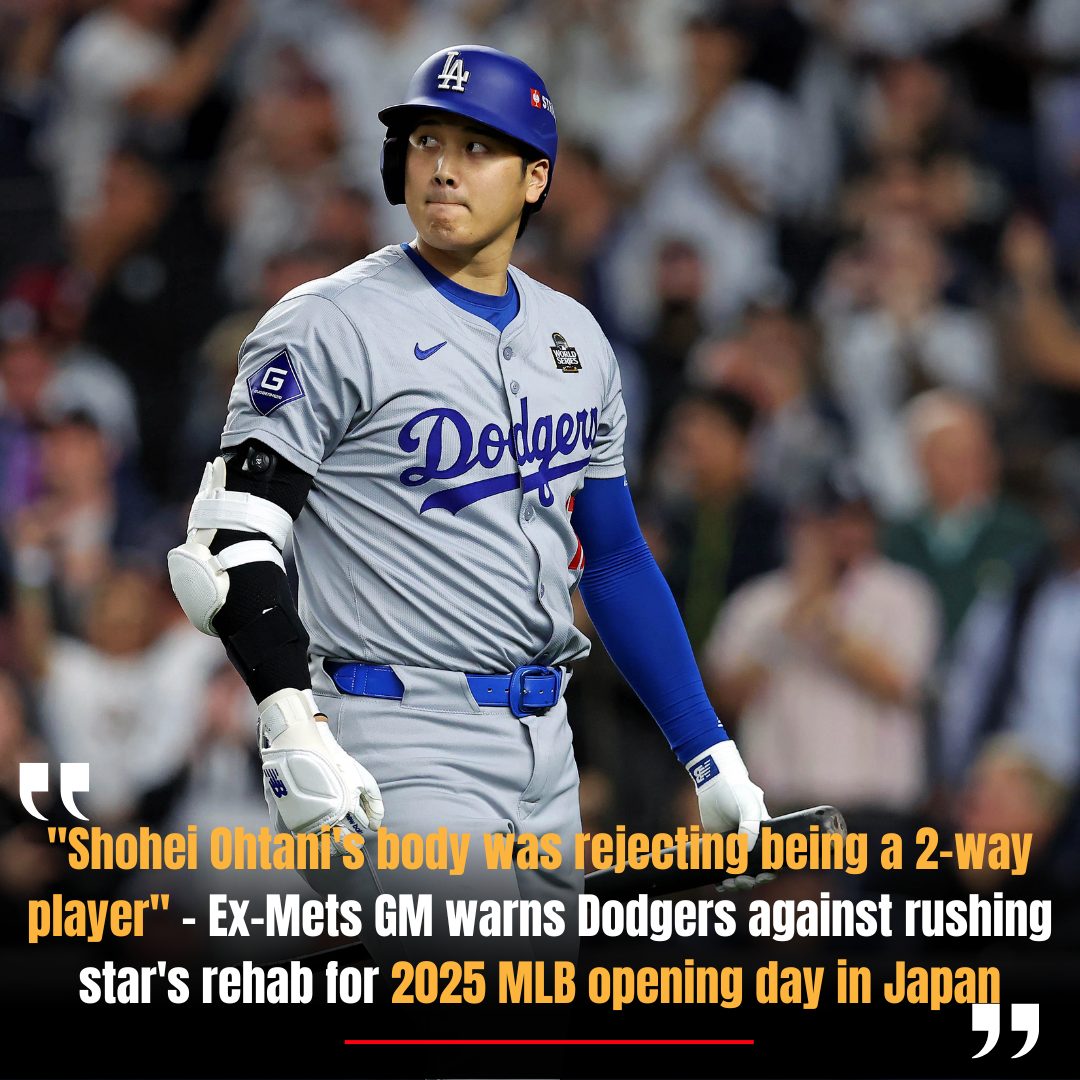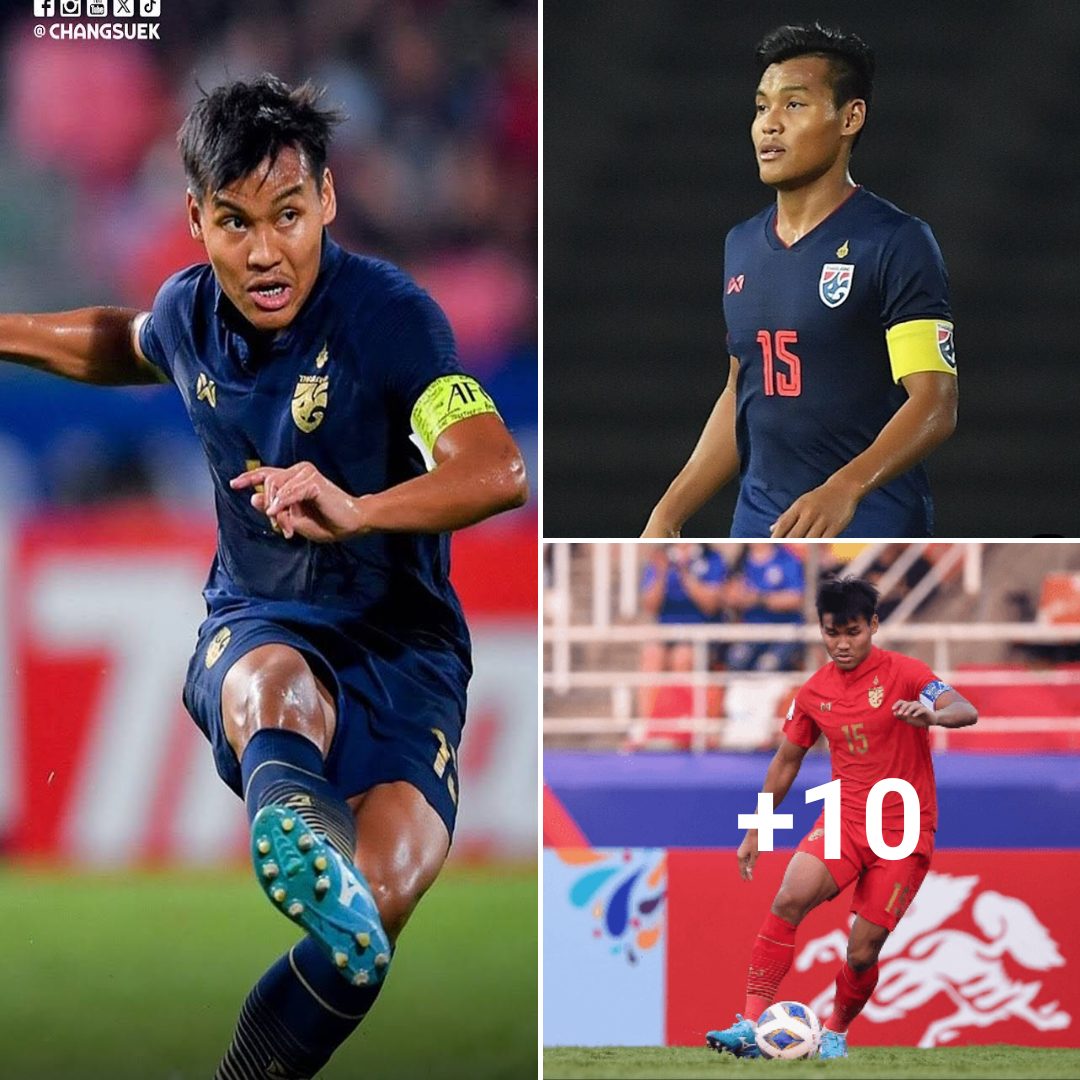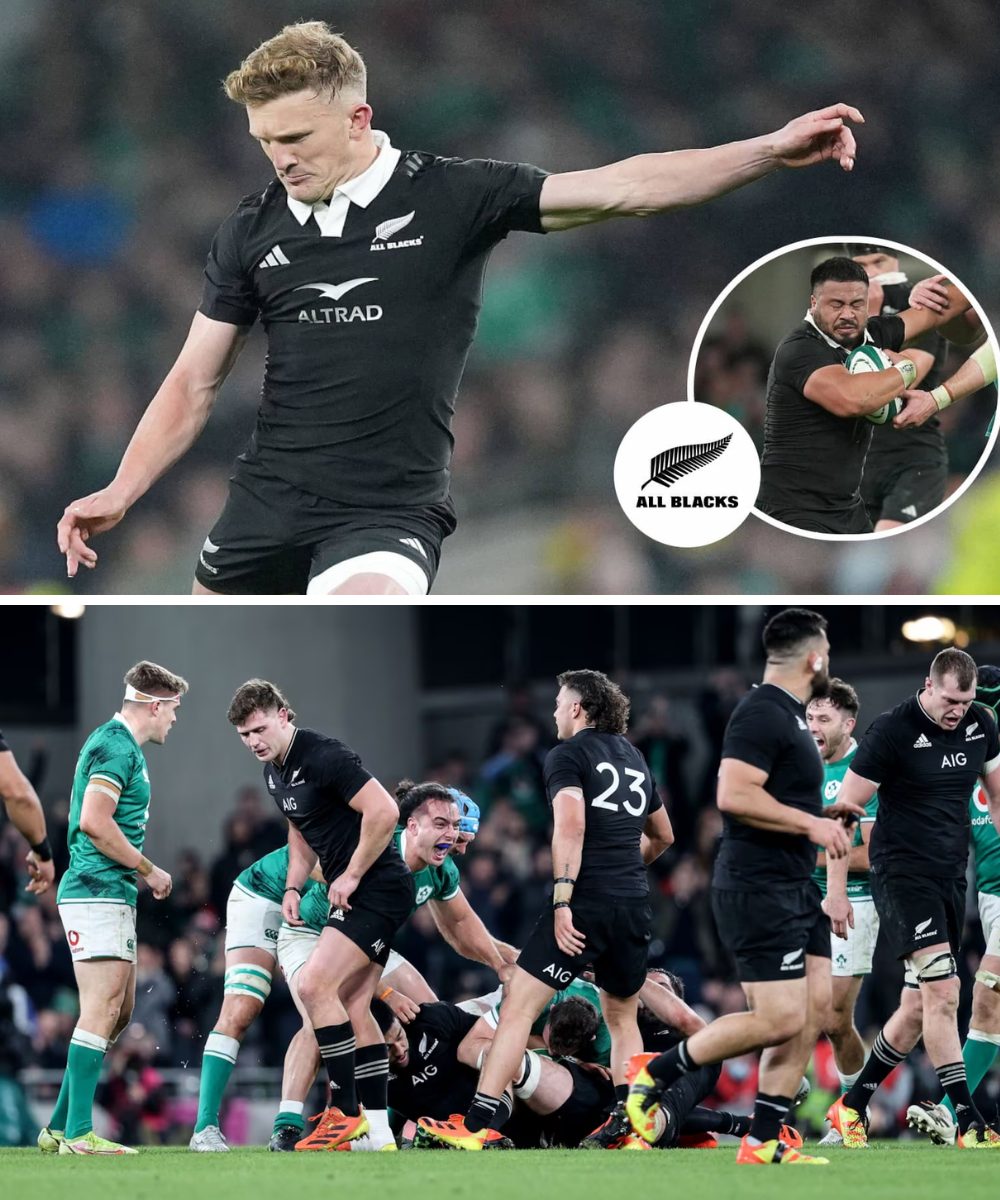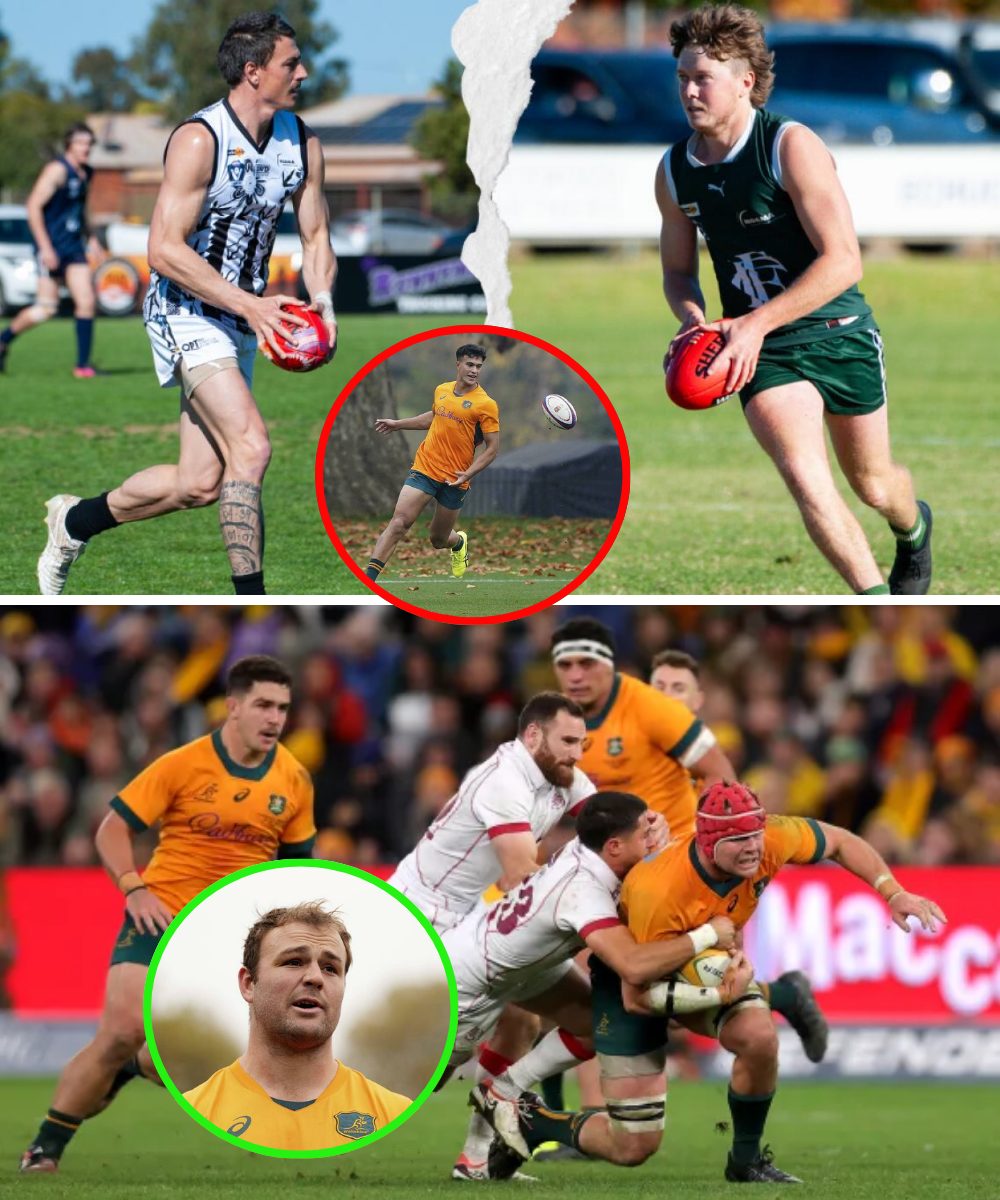The term overpaid in the NBA is a word we hear used quite often. It is a term used to describe a player who receives a lucrative contract in free agency or, on an extension, who doesn’t quite live up to the money he was given. How do we fairly label a player as overpaid? Well, the answer to that is quite simple.
First, you must look around the NBA for players of similar contract valuation. If the player in question fails to produce on that same level, chances are they are being overpaid. Let’s also consider this. Some players provide different things to a team, as we all know. Three-point specialists or defensive specialists perhaps should not be paid like elite superstars, but it happens, and it happens often.
Daryl Morey Wants To Convince James Harden To Stay WithThe 76ersRead More
Teams will also go into panic mode and overpay for players, especially in free agency. When the number of available players that fits a team’s needs starts to dwindle, you will certainly see some contracts that make you scratch your head. Today, we are going to take a look at the contracts that did just that in the last 20 years. These deals are among the worst contracts in NBA history and still make us wonder what these teams were thinking at the time. Get ready for a whole lot of money being thrown around as we take a trip down memory lane.
These are the most overpaid NBA players in the last 20 years.
20. Stephen Jackson – $27.6 Million, Three-Year Deal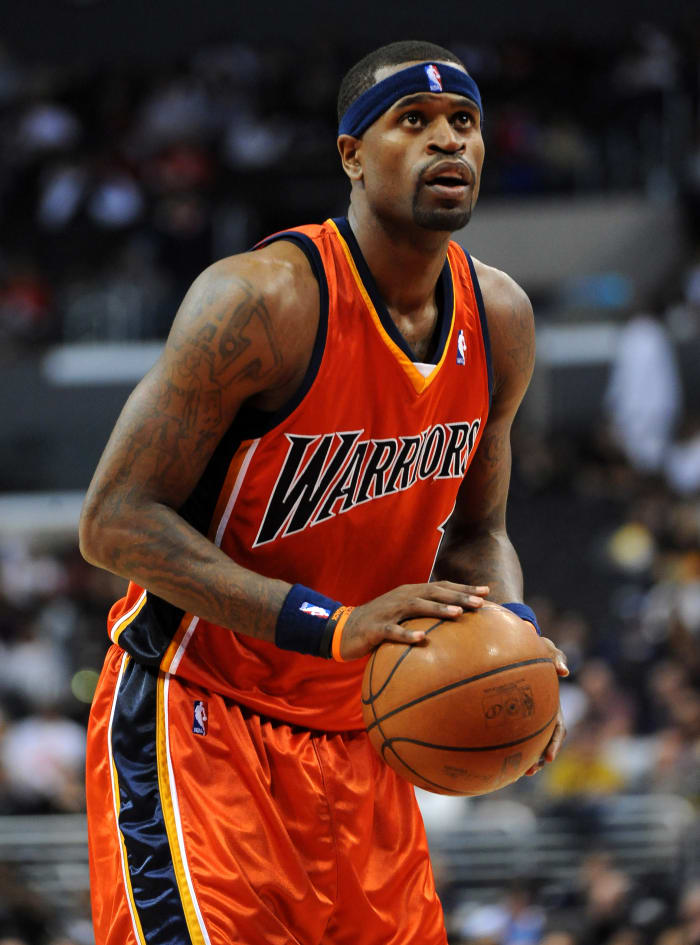
Credit: Kirby Lee-USA TODAY Sports
Stephen Jackson’s contributions to various teams and winning situations over the years are completely underrated. That being said, the Golden State Warriors decision to give him over $9 million per season in 2008 made absolutely zero sense.
After being traded from Indiana to Golden State during the 2007 season, Jackson was one of the main catalysts behind the We Believe Warriors run in the 2007 playoffs. He averaged 16.8 PPG in 38 games for the Warriors that year and just over 20.0 PPG in the first two years of his contract extension. However, the Warriors didn’t even need to pay him. Jackson still had two years left on his previous deal, which would have paid him until he was 32 years old.
What makes this even more of an overpay is the fact that the Warriors would trade Jackson just a year and a half later to the Charlotte Bobcats. Look, Jackson was decent during these seasons, so his production didn’t make him overpaid. What made him overpaid is the fact that the Warriors essentially paid him to play somewhere else. After the deal to Charlotte, Jackson had just one more season of great play before his career began to decline at age 33.
Twas’ an overpay in every sense of the word.
19. Josh Smith – $54 Million, Four-Year Deal
Credit: Tim Fuller-USA TODAY Sports
Josh Smith was a threat in many ways on the basketball court. He was an elite rim-runner, incredibly athletic, and could throw down some of the most vicious dunks you will ever see. He was also quite the shot-blocker from the weak side. However, it would be the things he couldn’t do well that would make this contract an overpay.
In 2013, after nine seasons with the Atlanta Hawks, Smith signed a $54 million deal with the Pistons to be given out over four years. Smith would not even last half of that contract. In his first year with Detroit, Smith would average 16.4 PPG, 6.8 RPG, 1.4 SPG, and 1.4 BPG. Pretty good numbers, right? Well, not when you consider his 26.4% shooting from three and 41.9% shooting overall.
To add on top of his somewhat selfish play, Smith clashed with teammates and coaches constantly in Detroit. Just 28 games into his second season with the team, Smith was cut by Stan Van Gundy, prompting years of Smith being paid out by the Pistons despite playing elsewhere and being out of the NBA. Smith was a good player at his peak, but worth $54 million at that time? Not a chance.
18. Omer Asik – $44 Million, Four-Year Deal
Credit: Matt Bush-USA TODAY Sports
To say Omer Asik’s Deal with the New Orleans Pelicans is one of the worst in team history would be a massive understatement. In 2015, Asik was coming off two below-average seasons in Houston with the Rockets. After two seasons with Houston, they were able to trade a previously bad contract handed out to Asik to the Pelicans, who then did the unthinkable by giving him a four-year, $44 million deal. With incentives, which Aski came nowhere close to meeting, it could have been a $60 million deal.
What did New Orleans get out of their massive overpay? Well, they got three and a half seasons of a below-average frontcourt player next to Anthony Davis. In his three-and-a-half seasons, Asik averaged 4.9 PPG and 7.2 RPG for the Pelicans, which translated to one playoff berth and 2.0 PPG in the playoffs in 2015.
After the Asik experiment was over, the Pelicans traded him to the Bulls in exchange for Nikola Mirotic. Asik would play four games with the Bulls before walking away from the game for good at the age of 31.
17. Darius Miles – $48 Million, Six-Year Deal
Credit: Fadeaway World
There was a time when Darius Miles had the most potential in the NBA. He was a prep-to-pro star that was set for a successful NBA career like many before him. He was just 23 years old when he inked a massive deal with the Portland Trail Blazers in 2004, a contract that he would fail to live up to in a big way.
Portland would be Miles’ third stop in his career, having failed to live up to the massive hype he had coming into the 2000 NBA Draft, one of the worst draft classes ever. Miles was decent in his first season after inking his deal with the Trail Blazers, averaging 12.8 PPG, 1.2 SPG, and 1.2 BPG in 63 games played. During the next season, Miles suffered a knee injury that would cost him 42 games and the next two full seasons. The injury ultimately ended his career and to make matters worse, Portland was on the hook for his remaining $18 million.
Despite their finest efforts to avoid a team signing Miles in order to avoid paying him, Miles made a comeback in 2008-09 with Memphis, prompting Portland to pay him his money while the Grizzlies were only on the hook for the minimum. Apparently, $48 million earns you 13.1 PPG and 4.6 RPG over four years. I’m kidding. This was a massive overpay in every sense of the word.
16. Brandon Roy – $82 Million, Five-Year Deal
Credit: Soobum Im-USA TODAY Sports
When healthy, Brandon Roy was one of the most talented players in the entire NBA. Ask any wing player who played against him in the 2000s, and they will tell you the same thing. The problem was Roy’s knees betrayed him and us as NBA fans of an outstanding career.
Now Roy earned his contract extension with Portland, there is no denying what he could have been in this league. However, sometimes the way things work out makes a contract a bad one and leads to a severe overpay by a franchise. Roy received his extension in 2009 after he had made his second straight All-Star and All-NBA Team with the Trail Blazers at just 24 years old. No one could see what was coming next.
Roy’s knees began to deteriorate rapidly. He would have another All-Star season in 2010 before his physical limitations caught up to him. In 2011, Roy played just 47 games of 12.2 PPG basketball before being shut down for the season. This was when Roy learned of the degenerative disease in his knees that turned them into liabilities. Roy would be forced to retire that very off-season, knowing he could not play the game he loved.
There is no doubt that Roy would have been worth every penny if he could have remained healthy. Given the circumstances that we now know, this can only be called a massive overpay by the Portland Trail Blazers once again. Nothing more, nothing less.
15. Eddy Curry – $60 Million, Six-Year Deal
Credit: Fadeaway World
The amount of money wasted by the New York Knicks on under-achieving or past-their prime-big men over the years is staggering, as you will see as this list goes on. One of those players I am alluding to is Eddy Curry and the $60 million they gave him in 2005.
Curry had been the fourth overall pick of the Chicago Bulls in the 2001 NBA Draft where he played for four seasons averaging 11.8 PPG and 4.9 RPG. As a young man, he helped lead the Bulls to the playoffs before being diagnosed and sidelined with an irregular heartbeat. The Knicks would trade for Curry in 2005 and immediately extended him with a $60 million deal over six years. That would be a disaster.
Don’t get me wrong, Curry could score, but that’s about all he could do. He wasn’t an aggressive rebounder or defender and as the years went on, his conditioning deteriorated to almost nothing. By the end of 2008, Curry was north of 33 pounds and completely out of basketball shape. He would play just 10 games for the Knicks in 2009 and 2010 combined and another 16 games over the following two seasons with the Heat and Mavericks. Is $60 million really worth three seasons of extremely average play? We think not.
14. Elton Brand – $82 Million, Five-Year Deal
Credit: Howard Smith-USA TODAY Sports
Early on in his career, Elton Brand looked like he was well on his way to becoming one of the next great bigs in NBA history. He was a consistent 20.0 PPG scorer who grabbed over 10.0 RPG and earned two All-Star appearances and an All-NBA Team selection in 2006. After the 2008 season, the 76ers made a bold move to overpay Brand and ink him to a five-year deal. It would backfire on them in a big way.
Brand would arrive in Philadelphia still able to score and rebound among the Tier 2 bigs in the game, but nowhere close to the All-Star, he used to be. In five seasons with the 76ers, Brand would average just 12.7 PPG and 7.2 RPG compared to the double-double machine he was in Chicago and Los Angeles.
Brand was originally worth the money, but as I explained before, these players do not get labeled overpaid until their contract begins to play out. With that being said, Philadelphia would make just two playoff appearances with Elton Brand in their lineup after paying him one of the largest deals in the NBA at the time. I believe that is the definition of being overpaid in a nutshell.
13. Stephon Marbury – $74 Million, Four-Year Deal
Credit: Fadeaway World
In 2004, the Knicks made a move that excited fans everywhere when they acquired hometown kid Stephon Marbury from the Phoenix Suns. Marbury was a rising star in the NBA who was as talented of a scorer as he was a playmaker, whether finding teammates or creating his own shot. Early on with the Knicks, Marbury would be the point guard I just described. By the end of his time in New York, he was no longer wanted by anyone in town, including the fans.
Over the course of five seasons, the Knicks would pay Marbury close to $88 million. What they received in return was constant badgering between him and coaches that even led to multiple suspensions for conduct detrimental to the team. Sure, Marbury’s numbers looked good over the first two seasons he was there, but it never amounted to even making the playoffs other than the half-season after they acquired him in 2004.
By the end, Marbury had alienated himself from his coaches, fans, teammates, and even team executives. The Knicks would end up buying him out and paying him $19 million to essentially go away. So, you mean to tell me the Knicks paid $88 million for one sweep in the first round of the playoffs in 2004 and headaches for the rest of his tenure? Yeah, that sounds like the Knicks during the 2000s. What else do you expect from a team that paid over $3 billion since 1999 and has never been back to the NBA Finals?
12. Ben Wallace – $60 Million, Four-Year Deal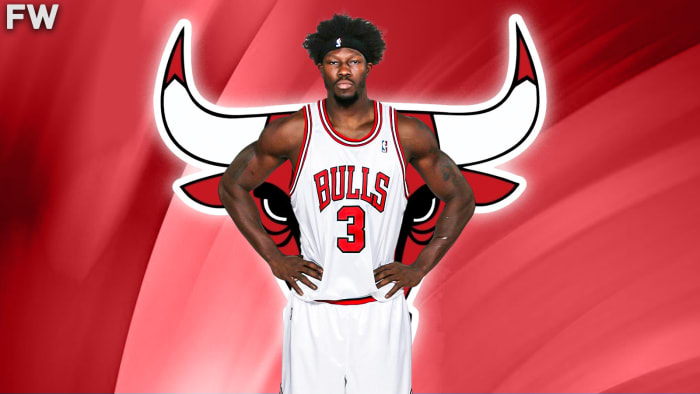
Credit: Fadeaway World
During the early 2000s, there were very few centers I would take on my team over a prime Ben Wallace. He was a four-time Defensive Player of the Year and an anchor for a championship defense in 2004 with the Detroit Pistons. By 2007, Wallace had begun to decline a bit, but that didn’t stop one team from doing everything they could to bring him in.
Around this time, the Chicago Bulls were desperate for a big man that could lead their defense and rub off on the younger generation of players coming in. With this in mind, the Bulls signed Wallace to a $60 million deal over four seasons, an average annual value of $15 million per season. The move seemed great until they realized they were not getting the Wallace of old and one who had started to go downhill fast.
The Bulls would hold on to Wallace for a total of 127 games until trading him to Cleveland in 2007-08, just one season-plus into the contract. Wallace would play five more seasons in the NBA, remaining a non-factor on offense with declining defensive ability as well. If you ask me, the Bulls overpaid for the name rather than looking ahead at what the player could provide, which in this case, did not match the money they gave him in the slightest bit.
11. Bismack Biyombo – $72 Million, Four-Year Deal
Credit: Mike Dinovo-USA TODAY Sports
The 2016 NBA offseason was a pocket-lining offseason for many below-average players. The first one from that year we will discuss is the deal given to Bismack Biyombo from the Orlando Magic. Biyombo had been a complete bust up until that point with the Hornets and Kings after being drafted seventh overall in 2011.
In 2015-16 with the Raptors, apparently, the Orlando Magic monitored Biyombo’s situation a little too closely. Biyombo would have a very pedestrian playoff run averaging 6.2 PPG and 9.4 RPG. He was a good defender with little to no offensive game to speak of. This is why it was puzzling when Orlando gave him $72 million, or $18 million per season in free agency. Also, the Magic already had Nikola Vucevic at center, making the move even more puzzling.
So, how did it work out? Orlando got Biyombo for two seasons as he averaged a whopping 5.8 PPG and 6.3 RPG in 163 games played as their backup center. Decisions like these are why Orlando is stuck in a playoff drought of two appearances since 2012. Biyombo is still in the NBA with the Suns, where he is being paid what he is worth at $1.5 million.
10. Gilbert Arenas – $111 Million, Six-Year Deal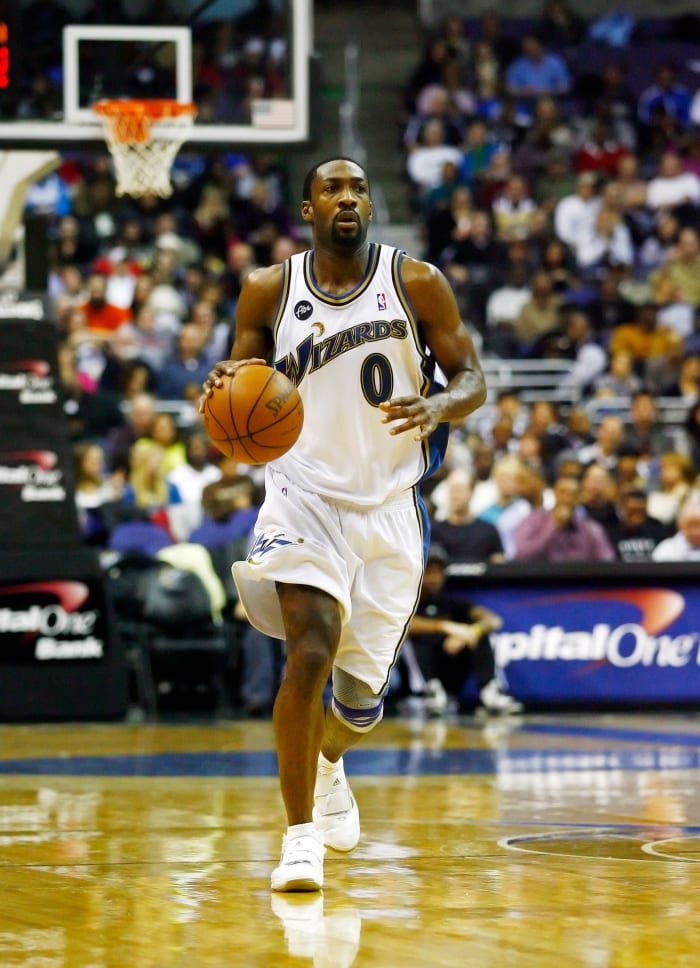
Credit: Geoff Burke-USA TODAY Sports
To kick off our top 10, we have another case of a player not being considered overpaid until his contract is played out, and this one is a doozy. Gilbert Arenas was an electric guard during the 2000s that was among the NBA’s top scorers for a short period of time. By the time 2008 came around, Arenas was already a three-time All-Star but had missed most of 2007-08 with a knee injury. Still, the Wizards awarded him this massive extension worth $11 million over six seasons. Big mistake.
Over the next three seasons, Arenas would play just 55 games with Washington, with his knee never really getting better. He would also receive one of the longest suspensions in NBA history after having an armed standoff with a teammate in his own locker room at Wizards practice. With the suspension and team detriment looming, as well as his knee injuries, Arenas would be traded by the Wizards in 2010-11, less than three years after inking his big deal.
Arenas would never recover physically and be out of the NBA by 2011-12. There haven’t been much harder falls from grace than the one Arenas suffered at the backend of his career. Earning $111 million on top of it makes this easily one of the 10 worst overpays in NBA history.
9. Rashard Lewis – $118 Million, Six-Year Deal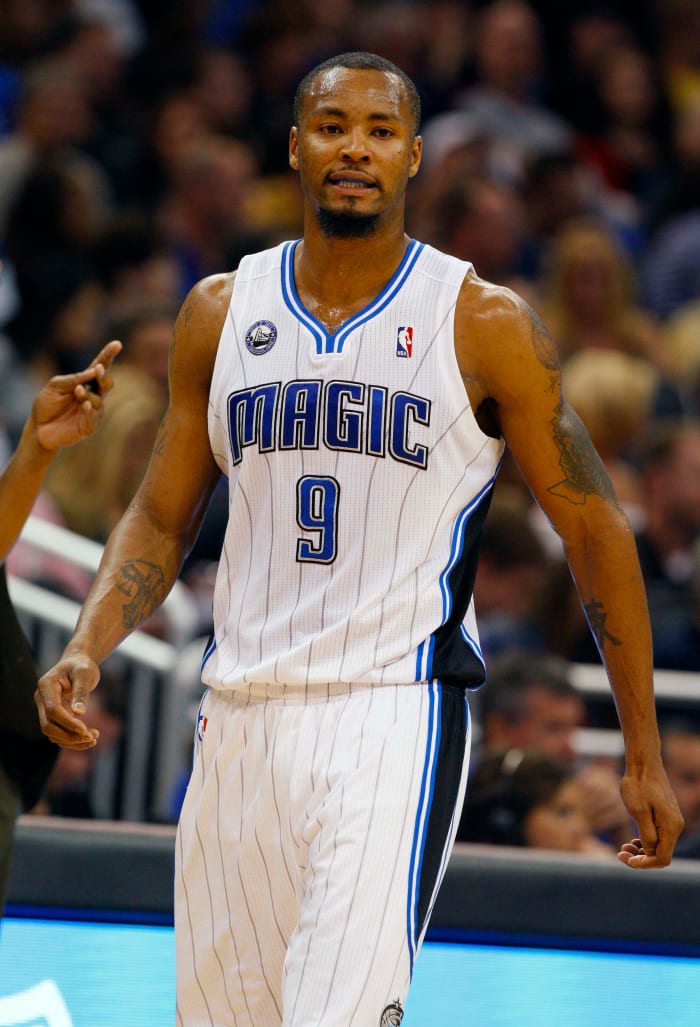
Credit: Kim Klement-USA TODAY Sports
As good as Rashard Lewis was in his nine seasons with the Seattle SuperSonics prior to this massive overpay, he was never good enough to be worth nearly $20 million per year. He was an All-Star just one time in those nine seasons and was never named to an All-NBA Team. He never led the NBA in any statistical categories, yet the Magic paid him like he was all of those things.
The worst part of Lewis’ deal with the Magic is that it was backloaded. As Lewis got older and less productive, he became more and more expensive. In fact, in 2011, the only player making more than him was Kobe Bryant in the entire NBA. Yeah, it was that bad. Don’t get me wrong, Lewis helped the Magic reach the NBA Finals in 2009 and averaged 16.3 PPG during his four seasons there. Were those four seasons worth the money he was getting? That is one big, absolutely not.
8. Nicolas Batum – $120 Million, Five-Year Deal
Credit: Jeremy Brevard-USA TODAY Sports
Back to the 2016 NBA free agency period, where apparently, if you even sniffed 15.0 PPG, you were guaranteed $100 million. For the Charlotte Hornets, they fell victim to this rationale as they gave Nicolas Batum a massive $120 million deal over five years after just one season with the team.
The move made some sense as Batum had led Charlotte in scoring the season before and helped them win 48 games. But $120 million for 14.9 PPG is a bit much, I would say. As for the deal, Batum would not live up to it in the slightest and even went out of his way to publicly apologize for failing to do so.
In his five seasons with the Hornets, Batum averaged 12.1 PPG, 5.5 RPG, and 4.9 APG. While he was decent in his time there, the team would make just one playoff appearance led by their top money-getter, which is just one more hiccup in the tenure of Michael Jordan as team owner. Batum is a decent role player with the Clippers these days, making a more modest $11 million in 2023-24 compared to the $25 million he got in 2020 from Charlotte.
7. Amar’e Stoudemire – $99.7 Million, Five-Year Deal
Credit: Jeremy Brevard-USA TODAY Sports
Back in 2010, the entire NBA was in on the sweepstakes for free agent LeBron James. When the Knicks missed out on that opportunity, as they often do, they went into a panic mode of sorts. One of those panic moves was dishing out nearly $100 million to Amar’e Stoudemire who was coming off five All-Star selections and four All-NBA Team selections with the Suns over eight seasons.
The first year of the deal went extremely well. The Knicks traded for Carmelo Anthony and Stoudemire was an All-Star and All-NBA Second Team selection in 2010-11. It was all downhill from there. Over the next three and a half seasons, Stoudemire would play 60 games just once, with various injuries hindering him from being a part of playoff games and late-season runs.
As far as Knicks overpays go, Stoudemire has to be toward the top of the list. His decline and sometimes horrendous decision-making (ask the fire extinguisher in Boston what I mean) are what put him in this spot with ease as we head toward the top overpays in the last 20 seasons.
6. Gordon Hayward – $120 Million, Four-Year Deal
Credit: Neil Redmond-USA TODAY Sports
As we move back onto Michael Jordan’s horrid decisions as Hornets owner, we get to easily one of the worst contracts handed out in the last 20 years. In the 2020 offseason, Gordon Hayward was coming off an awful three-year stint in Boston with the Celtics that saw him suffer a gruesome leg injury in his first game and miss 121 games in total.
As the Hornets rid themselves of Batum’s horrible contract, it is almost like they said to themselves, “We wouldn’t be the Hornets without at least one bad contract on our books”. They decided to pay the one-time All-Star and zero-time All-NBA Hayward to a $30 million per year deal backloaded to further hinder Charlotte’s chances to compete.
Since arriving in Charlotte, Hayward has yet to play in over 50 games in any season. He has looked good at times during his three seasons there, averaging 16.6 PPG on 46.9% shooting. Again, I point to the games played issue. Hayward just made over $30 million in 2022-23 for his 50 games played in 2022-23. The only thing that the Hornets and their fans have to look forward to with this deal is that after giving him $31.5 million in 2023-24, the Gordon Hayward era will be over, and they can finally try to get some hello elsewhere after being unable to offload Hayward in any way in the last two seasons.
5. Joakim Noah – $72.6 Million, Four-Year Deal
Credit: Erik Williams-USA TODAY Sports
Over the years, the Knicks have made several deals that should be on this list if they were stretched past 20 years ago. One of their most recent signings takes the cake in terms of overpaying for an over-the-hill star well past their prime. Joakim Noah was coming off an injury-riddled season in which he played 29 games with the Bulls. Who else but the Knicks would think that he was still as valuable as $18 million per season?
Noah’s entire Knicks tenure would last 53 games which included just seven games in his second season of the deal. He averaged 4.6 PPG and 7.9 RPG in those games, which worked out to $450,000 per minute by the way. Noah was a complete shell of himself before he even inked this deal and with all of the horrid signings in 2016, this was among the worst.
Eventually, the Knicks and Noah came to an agreement after the two seasons to buy him out and let him seek employment elsewhere. He would do so, playing just 47 games with the Grizzlies and Clippers in 2019 and 2020. I feel like saying overpay is underselling just how bad this deal was.
4. Chandler Parsons – $94.5 Million, Four-Year Deal
Credit: Justin Ford-USA TODAY Sports
Even on a good day, Chandler Parsons was never worth $94.5 million over four years. Previous to the 2016 offseason, Parsons had spent two lackluster seasons with the Mavericks in which injuries completely took him out. At the end of the 2015-16 season, Parsons suffered a season-ending knee injury that required surgery to repair.
This didn’t stop the Memphis Grizzlies from signing Parsons to a massive deal after he opted out of his Dallas contract. What they either didn’t know or just completely missed is the fact that his knee was never fully healed and the ramifications of the contract were just getting started. Parsons would play just 95 games in three years while averaging 7.2 PPG, but that isn’t even the worst part.
Parsons’ contract handcuffed the Grizzlies and they went into full rebuild mode. They would lose Mike Conley and Marc Gasol but somehow convinced the Hawks to take on his deal. Parsons would play five games with Atlanta, meaning they paid him $5 million per game before he left the NBA for good in 2020. As far as overpays go, this is Memphis’ worst in franchise history.
3. Timofey Mozgov – $64 Million, Four-Year Deal
Credit: Fadeaway World
The next two overpays for mediocre production both come from the Los Angeles Lakers during the 2016 offseason. Timofey Mozgov was never the type of player that I ever looked at and said, “Man, I wish that guy was on my team”. I would like to give Los Angeles the benefit of the doubt and say they fell victim to the LeBron James effect as Mozgov won a championship with James in 2016 on the Cavaliers.
As much as I would like to though, that still doesn’t explain $16 million per season for a player who never even sniffed an All-Star Game. Right away, it was clear how big of a mistake the Lakers had just made. In 54 games in 2016-17 with L.A., Mozgov would average 7.4 PPG and 4.9 RPG while playing just over 20.0 minutes per game. Ahh, to be a big man in 2016 would have had me set for life.
Back to reality at 5’8’’, I now wonder what exactly the Lakers were thinking but they eventually made up for it, kind of. They offloaded Mozgov to the Brooklyn Nets in exchange for a pick that turned into D’Angelo Russell, which I would say worked out at the time. They didn’t have to pay him past one season and got a decent point guard out of it. Still, $72 million for Timofey Mozgov will never, ever sit right with me.
2. Luol Deng – $72 Million, Four-Year Deal
Credit: Kirby Lee-USA TODAY Sports
Now, we move on to the Lakers’ biggest contract blunder of the last 20 years. During the 2000s and 2010s, Luol Deng was a valuable asset for the Chicago Bulls and Miami Heat. He was a versatile forward who could do a little bit of everything on the court and undoubtedly made his teammates better around him. What happened to him as a Laker is both bewildering and aggravating at the same time.
After playing 56 games in his first year of the deal, Deng was somehow blackballed by his own team. In 2017-18, he would play one game before being buried on the bench even as the forwards in Los Angeles dropped like flies. Coach Luke Walton and Deng came to an agreement behind closed doors, but sitting your third-highest-paid player never seemed right to me.
What made things worse was that Deng, who retired in 2019, was still being paid $5 million per season by the Lakers through 2022. That means that their projections were so wrong about Deng, they paid him over $15 million while he was away from the game, very Bobby Bonilla-like from the Lakers. This hindered the Lakers for a few seasons as they sought after free agents to surround LeBron James with as well.
1. John Wall – $170 Million, Four-Year Deal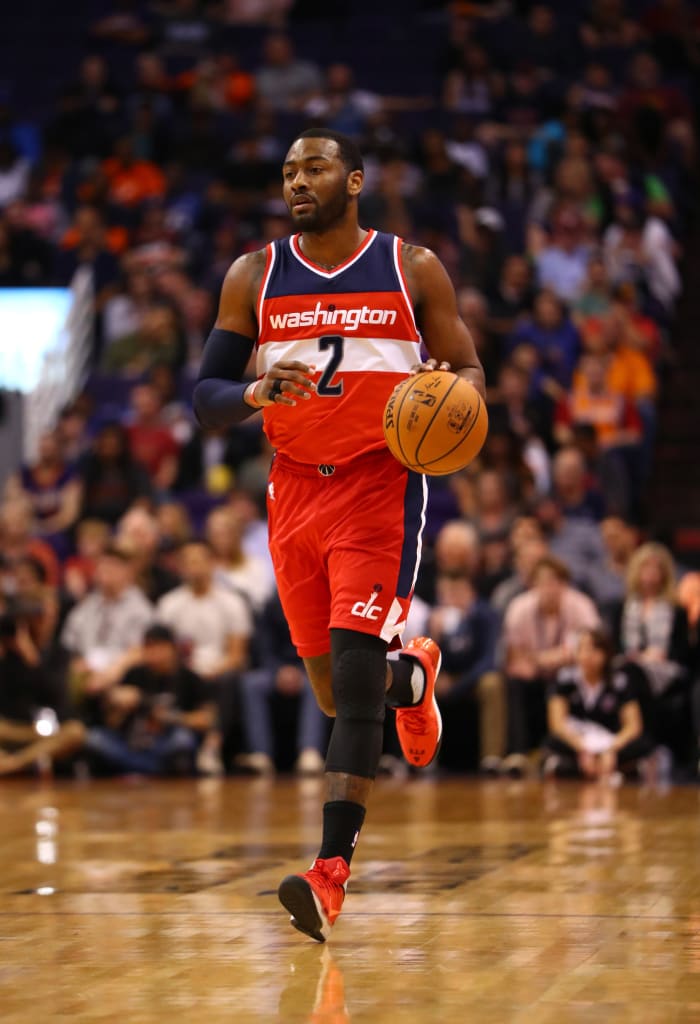
Credit: Mark J. Rebilas-USA TODAY Sports
Of all the overpays in the last 20 years, none have been worse for two franchises, or overall, than the one that coincides with John Wall’s name. The Rockets thought they had rid themselves of all drama when trading a disgruntled James Harden to Brooklyn. Little did they know, things were just getting started.
They would acquire John Wall in a deal with the Wizards, which only made matters worse for their organization. Wall was coming off lower leg injuries that cost him all of the 2020 season, with Houston looking to be a fresh start for him. He would play 40 games in 2021 and averaged 20.6 PPG along with 6.9 APG. Unfortunately, that wasn’t enough to make Houston happy and the standoff began.
Wall asked for a trade after Houston had decided he should come off the bench. Wall was not happy at all with the Rockets and decided his time would be better spent sitting out for the entire 2021-22 season while being paid over $44 million to do so. After finally agreeing to a buyout, Wall left the Rockets only to play 34 games in 2022-23 with the Clippers. In the history of the NBA, Wall’s four seasons under this deal have to be among the worst. In those four seasons, he never played 50 games and never reached his prime form again.
